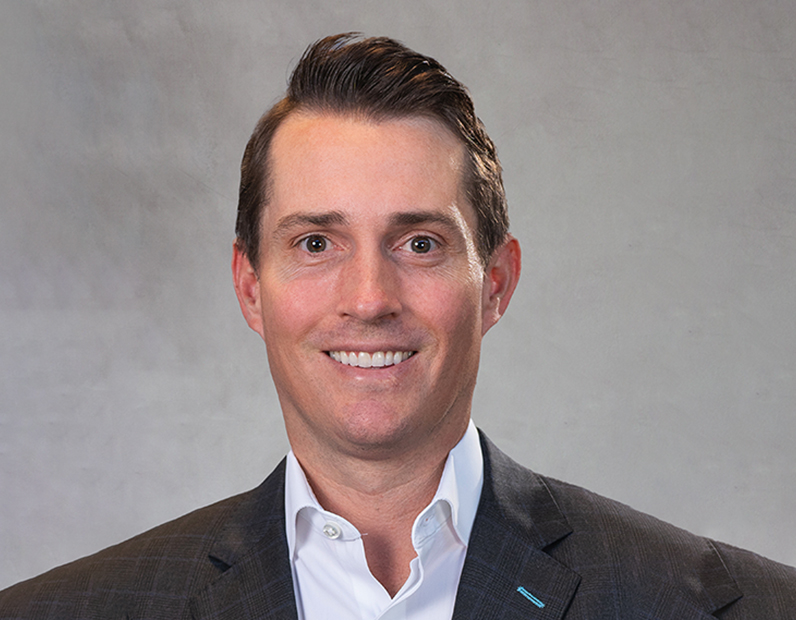8 Ways to Up Your Brokerage Game
With sales on the slow side, this is a good time to build your skills. Here's what seasoned brokers say you should focus on.
You’ve finally graduated and passed the state exam and are now a licensed commercial real estate sales broker. So what next? How do you put what you learned to practical use, gain meaningful experience in your chosen field and meet the expectations of your new employer? Fortunately, there are more senior real estate sales professionals willing to share their knowledge and best practices.
Commercial Property Executive reached out to successful sales professionals to get their advice for early-career brokers. Here’s what they had to say.
READ ALSO: 2025 Top CRE Brokerage Firms
1. Focus relentlessly

By focusing relentlessly, brokers become hard to compete against, according to Brian Doyle, managing director of capital markets & head of private client program at CBRE.
“You can’t be everything to everyone, and you can’t become an expert overnight,” Doyle said. Eventually, your network and expertise will set you apart, but early on, it’s often “just energy and effort” that differentiates you.”
Picking a niche and owning it completely will also yield dividends “Choose a geographic area, property type or tenant category and become the definitive expert on the market’s properties, owners, tenants, transactions, vacancy rates and lease expirations,” Doyle recommended.
2. Follow up consistently

Develop a cadence for contacting prospects, suggested Janet Clayton, a principal at Avison Young specializing in health-care sales and leasing in the Raleigh-Durham region. “Input your follow-up schedule on your calendar to ensure the schedule is consistent and easy to follow.”
If applicable, put prospects in categories that may call for a different prospecting cadence.
“And consider clients from closed transactions as ‘inactive’ rather than ‘past,’” she added, suggesting that you work them into your follow-up schedule to stay in touch on a regular basis. Stop by after a month to see how things are going or offer them a complimentary review of their annual expense reconciliations.
3. Build relationships of trust

Trusting in the process and focusing on building fundamentals are essential, according to Ryan Roedersheimer, senior vice president at National Shopping Center Group.
For Roedersheimer, the most important fundamental is building relationships. “Know how to connect with people from all walks of life and quickly,” he said. “Building trust is a skill, one that separates those able to break through from those who burn out.”
Further, Roedersheimer said, branding matters, but only if it’s authentic: “So be yourself. Define yourself clearly—what you stand for, whether on social media or face-to-face.”
Roedersheimer conceded that cold calling isn’t easy and can feel like telemarketing, but brokers need to get comfortable with being uncomfortable. “Confidence builds with time,” he added. “This business is a long climb, and we’re all still on the mountain.”
4. Be physically present

Carlos Bujosa, vice president at Transwestern, stressed the benefits of direct contact with clients and coworkers over digital communications.
“Personal relationships are difficult to develop if you only work from home, so get into the office and don’t miss out on opportunities to network,” he noted.
He also favors voice calls over text messages:. “Sometimes a simple phone call can resolve a dispute quickly and get a deal done,” Bujosa added. “Also, a handwritten thank you note will have a much bigger impact than a thank you note via email.”
5. Pick the right mentor

Chris Drew, senior managing director & co-head of JLL’s Miami Capital Markets team, has some advice for selecting a mentor.
“Proper mentorship and sponsorship are paramount to any young person’s success, but you need a mentor that really cares about your success and is willing to give you tough love and some constructive criticism to help you navigate internal challenges that will inevitably come your way,” he said.
As your career grows, he noted, you’ll need someone willing to take you under their wing and advocate for you to clients. “If a client respects the person saying how great you are, they will ultimately respect you as well,” he noted.
Drew also suggested saying “yes” when a senior colleague asks you to go to dinner with a client or work over a weekend with a colleague, regardless of other plans, as you never know who you’ll meet, what experience you might get or where that one opportunity may lead. “If you’re at home and not in the game, it’s impossible to win.”
6. Put your client’s interests first

Jonathan Squires, managing director of capital markets at Cushman & Wakefield, emphasized the importance of acting in the best interest of clients, even if it affects you financially. Your job is to maximize the outcome for your client, he said.
“Sometimes the best advice you can give a client is not to sell now or take the second-highest offer because that deal is the most likely to close,” he said. “That decision might cost you money, but it builds trust.”
Squires noted the importance of running a competitive, disciplined and transparent process that keeps the buyer engaged and the client in control, while also creating a sense of urgency by setting deadlines and qualifying potential buyers thoroughly.
“Anticipate obstacles before they become problems,” he added. “The smoother the process, the stronger your client’s position at the table.”
Squires also stressed the importance of learning to position assets and price them right. “You’re not just selling a building—you’re selling a story, and your ability to craft and control the asset’s narrative brings buyers to the table and drives price,” he explained. “Position deals strategically: Is the value in a future redevelopment play, purely cap rate driven or ideal for a 1031 buyer?”
“Put together a tight, honest and compelling offering memorandum, and coach your team on what to emphasize on tours,” Squires added. “The better you tell the story, the more value you create for your client.”
7. Make a memorable impression

For Pamela Goodwin, principal at Goodwin Commercial, personal connections are the key to getting a prospect’s attention and staying on their radar. “Send a video, handwritten letter, small gift or gift card from Starbucks with a note to meet for coffee,” she recommended.
And create your own brand like a celebrity: “Think about what makes you stand out from other people in commercial real estate. What is your trademark—your colors, hair style, smile, intelligence?”
When attending industry events and networking, Goodwin suggested placing your name tag on the same side you shake hands with to give the person you’re talking with an easy way to see and remember your name.
“And ask open-ended questions like where did you grow up or why did you get into real estate to get people to talk about themselves and learn what you have in common,” she said.
8. Develop the right skills

Mike Adams, managing director of office investor services at Stream Realty Partners, said that brokers starting their careers need to understand what skills it takes to be best and do what is necessary to acquire them. Investment sales is not just brokering deals—it involves advising, innovating, hunting, storytelling and dealmaking, he explained.
“Developing these skills makes you invaluable to clients, so get comfortable reading title reports and talking to lenders, and learn to understand lease abstracts, estoppels and service contracts,” Adams said. “Know your market well as that can make up for transaction inexperience. Watch experienced brokers negotiate through adversity.”
He also emphasized that brokers be cutting edge: “AI won’t replace brokers, but brokers who use AI will replace brokers who don’t.”







You must be logged in to post a comment.